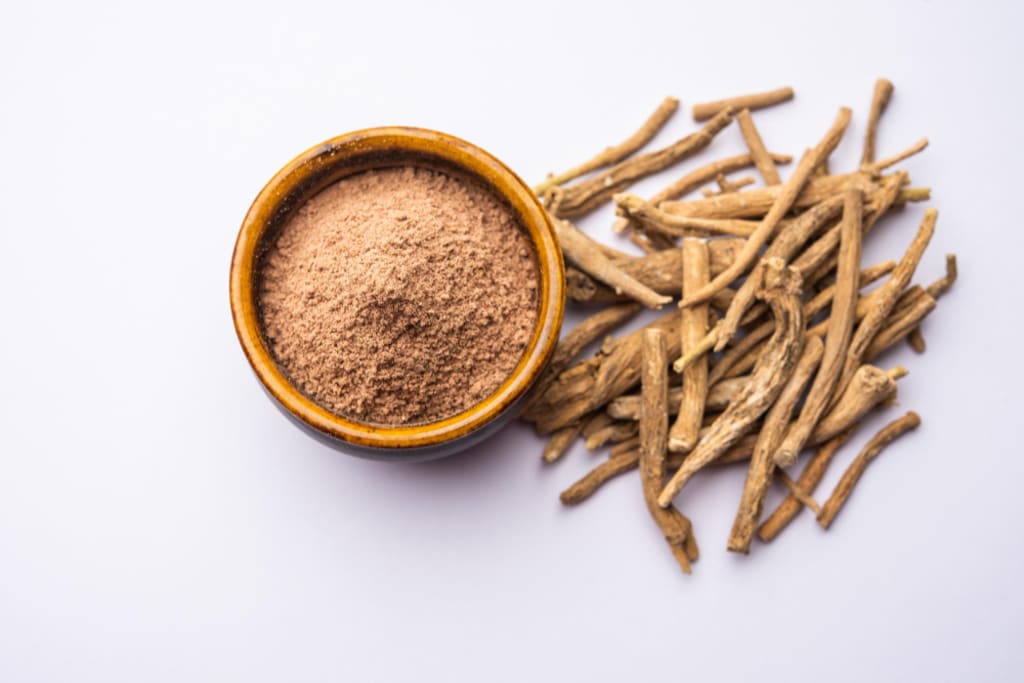The Ultimate Guide to Ashwagandha Powder: What It Is, How It Works, and How to Use It?
The Ultimate Guide to Ashwagandha Powder

Ashwagandha is a popular herb in Ayurvedic medicine and has been used for centuries in India and other parts of the world to treat a wide range of health conditions. The word "ashwagandha" is derived from the Sanskrit language and means "smelling like a horse," which refers to the strong, horse-like odor of the root.
Ashwagandha is a member of the nightshade family and is native to India, North Africa, and the Middle East. The plant has small, green flowers and produces red berries. The root and berry of the Ashwagandha plant are the parts most commonly used for medicinal purposes.
Ashwagandha powder is made from the dried root of the Ashwagandha plant and is widely available in supplement form. It can also be found as a component of herbal teas and other products.
One of the main active ingredients in Ashwagandha is a group of compounds called withanolides, which are believed to be responsible for the herb's medicinal properties. Ashwagandha has a number of potential health benefits, including reducing stress and anxiety, improving brain function, and reducing inflammation.
How Ashwagandha Powder Works
Ashwagandha is believed to work by regulating the levels of certain hormones and neurotransmitters in the body, such as cortisol, the "stress hormone." By regulating these chemicals, Ashwagandha may help to reduce stress and anxiety, as well as improve sleep and mood.
Ashwagandha may also have immune-boosting and anti-inflammatory effects. The withanolides in Ashwagandha may help to reduce inflammation in the body, which may be beneficial for conditions such as arthritis and asthma.
In addition, Ashwagandha may help to improve brain function by increasing the production of acetylcholine, a neurotransmitter that plays a role in memory and learning. It may also improve the function of the hippocampus, a part of the brain involved in memory and spatial navigation.
How to Use Ashwagandha Powder
Ashwagandha powder can be taken orally in supplement form or added to food and drinks. It is also available in capsule form.
https://spicezen.com.au/herbs-spices/ashwagandha-powder/The recommended dosage of Ashwagandha powder varies depending on the specific product and the condition being treated. In general, it is recommended to start with a low dose and gradually increase it as needed.
It is important to follow the dosage instructions on the product label or to consult with a healthcare provider before taking Ashwagandha powder. It is also important to note that Ashwagandha may interact with certain medications and may not be suitable for everyone.
Organic Ashwagandha Powder
Organic Ashwagandha powder is made from Ashwagandha that is grown without the use of synthetic pesticides, herbicides, or fertilizers. This type of Ashwagandha may be more expensive than non-organic varieties, but some people prefer it due to concerns about the potential negative health effects of chemical pesticides and other additives.
When purchasing ashwagandha powder, it is important to choose a high-quality product from a reputable manufacturer. Look for a product that has been tested for purity and potency and that provides information about the source and manufacturing process.
Possible Side Effects of Ashwagandha Powder
Ashwagandha is generally considered safe when taken in appropriate amounts, but like any herb or supplement, it can cause side effects in some people. Some of the possible side effects of Ashwagandha powder include:
Stomach upset: Ashwagandha may cause nausea, vomiting, or diarrhea when taken in large amounts or when taken on an empty stomach. To minimize the risk of stomach upset, it is recommended to take Ashwagandha with food or to start with a low dose and gradually increase it.
Skin rash: Some people may develop a skin rash or other allergic reaction to Ashwagandha. If you experience a rash or other allergic symptoms after taking Ashwagandha, stop using the product and speak with a healthcare provider.
Hypotension: Ashwagandha may lower blood pressure, which could be dangerous for people who already have low blood pressure or who are taking medications that lower blood pressure. If you have low blood pressure or are taking blood pressure-lowering medications, it is important to speak with a healthcare provider before taking Ashwagandha.
Interactions with medications: Ashwagandha may interact with certain medications, including sedatives, blood pressure medications, and medications used to treat diabetes. If you are taking any medications, it is important to speak with a healthcare provider before taking Ashwagandha.
Pregnancy and breastfeeding: Ashwagandha is not recommended for pregnant or breastfeeding women due to a lack of research on its safety in these populations.
It is important to speak with a healthcare provider before taking Ashwagandha, especially if you have a preexisting health condition or are taking any medications. A healthcare provider can help you determine the appropriate dosage and ensure that Ashwagandha is safe for you to use.
About the Creator
Enjoyed the story? Support the Creator.
Subscribe for free to receive all their stories in your feed. You could also pledge your support or give them a one-off tip, letting them know you appreciate their work.





Comments
Aditya Swarup is not accepting comments at the moment
Want to show your support? Send them a one-off tip.